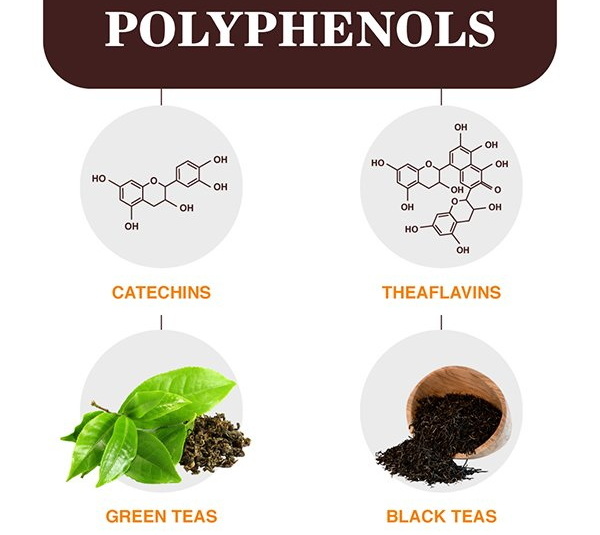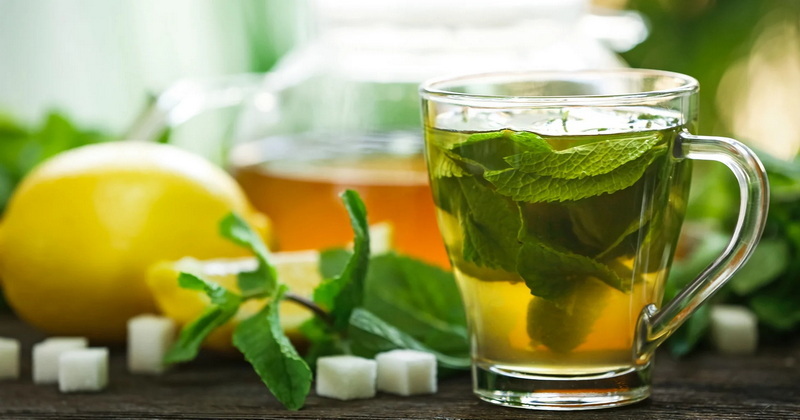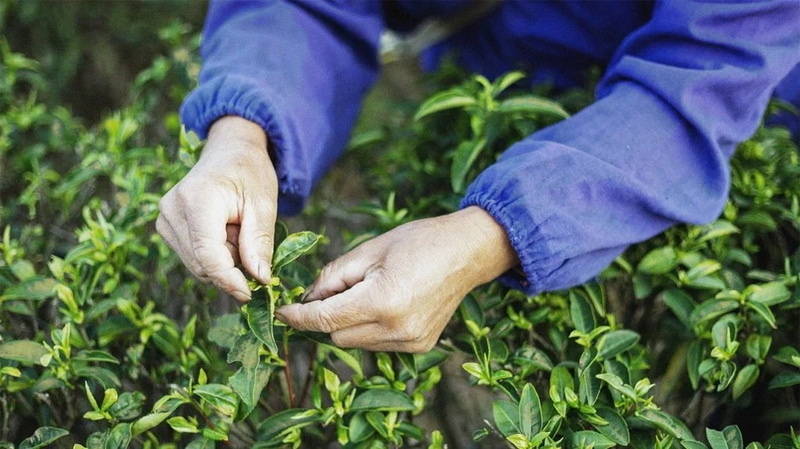Content Menu
● 1. Composition of Green Tea Extract
>> 1.1 Major Catechins in Green Tea
● 2. Health Benefits of Green Tea Extract
● 3. Sources of Green Tea Extract
>> 3.1 Dietary Supplements
>> 3.2 Beverages
>> 3.3 Skincare Products
>> 3.4 Food Products
● 4. How Green Tea Extract is Made
>> 4.1 Detailed Look at the Extraction Process
● 5. Safety and Considerations
>> 5.1 Potential Side Effects
>> 5.2 Recommended Dosage
● 6. Applications Beyond Supplements and Beverages
>> 6.1 Textiles and Clothing
>> 6.2 Animal Feed
>> 6.3 Packaging Materials
● 7. The Future of Green Tea Extract
>> 7.1 Emerging Research Areas
● Conclusion
● FAQ
>> 1. What are the main components of green tea extract?
>> 2. Can green tea extract help with weight loss?
>> 3. Is green tea extract safe for everyone?
>> 4. How should I take green tea extract?
>> 5. What skin benefits does green tea extract provide?
● Citations:
Green tea, derived from the leaves of the Camellia sinensis plant, is renowned for its health benefits, largely attributed to its rich composition of bioactive compounds. Among these, green tea extract is a concentrated form that captures the essence of green tea's health-promoting properties. This article explores what contains green tea extract, its components, benefits, and applications in various products.

1. Composition of Green Tea Extract
Green tea extract is primarily composed of polyphenols, specifically catechins, which are powerful antioxidants. The most significant catechin in green tea is epigallocatechin gallate (EGCG), known for its extensive health benefits. Other components include:
- Flavonoids: These contribute to the antioxidant properties of green tea.
- Amino Acids: Theanine is a notable amino acid found in green tea that promotes relaxation.
- Vitamins and Minerals: Green tea contains small amounts of vitamins C and E, as well as minerals like manganese and magnesium.
- Caffeine: Present in moderate amounts, caffeine can enhance alertness and energy levels.
1.1 Major Catechins in Green Tea
The catechins present in green tea include:
- Catechin (C)
- Epicatechin (EC)
- Epicatechin Gallate (ECG)
- Epigallocatechin Gallate (EGCG)
These compounds are responsible for many of the health benefits associated with green tea extract, including anti-inflammatory and anti-cancer effects.
2. Health Benefits of Green Tea Extract
Green tea extract has been extensively studied for its potential health benefits:
- Antioxidant Effects: The high concentration of antioxidants helps combat oxidative stress and may reduce the risk of chronic diseases.
- Weight Management: Studies suggest that green tea extract can aid in weight loss by enhancing metabolic rate and fat oxidation.
- Cardiovascular Health: Regular consumption may lower blood pressure and improve cholesterol levels.
- Cancer Prevention: Some research indicates that EGCG may inhibit tumor growth and reduce cancer risk.
- Skin Health: Green tea extract is often included in skincare products due to its anti-inflammatory properties and ability to reduce acne.
3. Sources of Green Tea Extract
Green tea extract is found in various products across different categories:
3.1 Dietary Supplements
Green tea extract is commonly available in capsule or powder form, providing a concentrated dose of its beneficial compounds. These supplements are often marketed for weight loss, enhanced energy, and overall health improvement. It's crucial to select supplements from reputable manufacturers to ensure quality and purity.
3.2 Beverages
Many health drinks incorporate green tea extract for its flavor and health benefits. This includes ready-to-drink teas, energy drinks, and functional beverages. When choosing beverages with green tea extract, it's important to consider the added sugar content, as some products may contain high levels of sugar to enhance taste.
3.3 Skincare Products
Due to its antioxidant properties, green tea extract is a popular ingredient in skincare formulations aimed at reducing signs of aging and improving skin tone. It is found in creams, lotions, serums, and masks, offering protection against environmental damage and promoting a healthy complexion.
3.4 Food Products
Some food items, such as snacks or desserts, include green tea extract for flavor enhancement and added health benefits. These may include green tea-flavored chocolates, baked goods, and even some savory dishes.

4. How Green Tea Extract is Made
The extraction process involves several steps:
1. Harvesting: Fresh leaves are harvested from the *Camellia sinensis* plant.
2. Steaming or Pan-Firing: The leaves are treated to prevent oxidation, preserving their green color and nutrients.
3. Drying: The leaves are dried to reduce moisture content.
4. Extraction: Dried leaves are then steeped in water or alcohol to extract the beneficial compounds.
5. Concentration: The liquid extract is concentrated to create a potent form used in supplements and products.
4.1 Detailed Look at the Extraction Process
The extraction process is crucial for obtaining high-quality green tea extract. Here's a more detailed look:
- Pre-treatment: The harvested leaves are first sorted and cleaned to remove any impurities.
- Enzyme Inactivation: Steaming or pan-firing deactivates enzymes that can cause oxidation, preserving the beneficial catechins.
- Extraction Method: The extraction is typically done using hot water or ethanol, which helps to dissolve the active compounds.
- Filtration: The extract is filtered to remove any solid particles.
- Concentration and Purification: The filtered extract is then concentrated through evaporation, and further purification steps may be taken to isolate specific catechins like EGCG.
- Drying and Powdering: Finally, the concentrated extract is dried to form a powder, which is then used in various products.
5. Safety and Considerations
While green tea extract offers numerous health benefits, it is essential to consume it responsibly:
- Dosage: Excessive intake can lead to toxicity; thus, it's advisable to adhere to recommended dosages.
- Consultation with Healthcare Professionals: Individuals with underlying health conditions or those taking medications should consult healthcare providers before starting any supplement regimen.
5.1 Potential Side Effects
Consuming green tea extract in large quantities can lead to several side effects:
- Caffeine-Related Issues: Due to its caffeine content, excessive consumption can cause insomnia, anxiety, and increased heart rate.
- Liver Problems: High doses of green tea extract have been linked to liver damage in rare cases.
- Stomach Upset: Some individuals may experience nausea, vomiting, or diarrhea.
- Drug Interactions: Green tea extract can interact with certain medications, such as blood thinners and chemotherapy drugs.
5.2 Recommended Dosage
The recommended dosage of green tea extract varies depending on the product and the individual's health status. However, a common guideline is to limit the daily intake of EGCG to 300-400 mg. It's always best to follow the instructions on the product label or consult with a healthcare professional for personalized advice.
6. Applications Beyond Supplements and Beverages
Green tea extract is finding its way into innovative applications beyond traditional supplements and beverages.
6.1 Textiles and Clothing
Some manufacturers are incorporating green tea extract into textiles to create clothing with antimicrobial and antioxidant properties. These textiles are designed to provide skin benefits and protection against harmful bacteria.
6.2 Animal Feed
Green tea extract is being explored as an additive in animal feed to improve the health and growth of livestock. Its antioxidant properties can enhance immune function and reduce oxidative stress in animals.
6.3 Packaging Materials
Researchers are investigating the use of green tea extract in packaging materials to extend the shelf life of food products. The extract's antioxidant and antimicrobial properties can help prevent spoilage and maintain food quality.
7. The Future of Green Tea Extract
The future of green tea extract looks promising, with ongoing research exploring its potential in various fields. Advances in extraction and purification techniques are expected to yield more potent and bioavailable forms of green tea extract. Furthermore, the growing consumer awareness of natural health solutions is likely to drive demand for green tea extract-based products.
7.1 Emerging Research Areas
- Neuroprotective Effects: Studies are examining the potential of green tea extract to protect against neurodegenerative diseases like Alzheimer's and Parkinson's.
- Diabetes Management: Research is exploring the role of green tea extract in improving insulin sensitivity and glucose metabolism.
- Wound Healing: Some studies suggest that green tea extract can accelerate wound healing and reduce scarring.
- Oral Health: Green tea extract is being investigated for its ability to prevent dental caries and improve gum health.
Conclusion
Green tea extract is a powerful natural ingredient packed with antioxidants and other beneficial compounds that promote health and wellness. Its versatility allows it to be incorporated into various products ranging from dietary supplements to skincare formulations. However, moderation is key to enjoying its benefits without adverse effects. As research continues to uncover new applications and benefits, green tea extract is likely to remain a popular and valuable ingredient in the health and wellness industry.

FAQ
1. What are the main components of green tea extract?
Green tea extract primarily contains catechins (especially EGCG), flavonoids, amino acids (like theanine), caffeine, vitamins, and minerals.
2. Can green tea extract help with weight loss?
Yes, studies have shown that green tea extract can enhance metabolic rate and fat oxidation, aiding in weight management.
3. Is green tea extract safe for everyone?
While generally safe for most people when consumed in moderation, individuals with certain health conditions should consult a healthcare provider before use.
4. How should I take green tea extract?
It can be taken as a supplement in capsule or powder form or consumed through beverages that contain green tea extract.
5. What skin benefits does green tea extract provide?
Green tea extract has anti-inflammatory properties that can help reduce acne and signs of aging when included in skincare products.
Citations:
1. https://pmc.ncbi.nlm.nih.gov/articles/PMC9231383/
2. https://www.healthline.com/nutrition/10-benefits-of-green-tea-extract
3. https://patents.google.com/patent/TWI607708B/zh
4. https://patents.google.com/patent/US20160219897A1/en
5. https://pmc.ncbi.nlm.nih.gov/articles/PMC6412948/
6. https://patents.google.com/patent/CN115052593A/zh
7. https://pmc.ncbi.nlm.nih.gov/articles/PMC6271668/
8. https://health.clevelandclinic.org/green-tea-extract-a-better-way-to-boost-energy-or-not
9. https://www.sohu.com/a/846632226_121124322
10. https://pmc.ncbi.nlm.nih.gov/articles/PMC9562686/






























